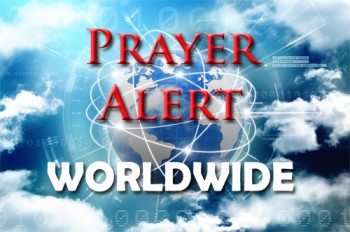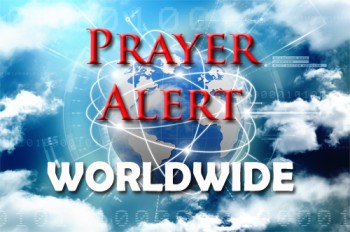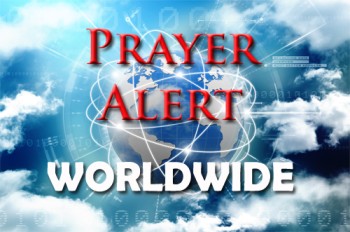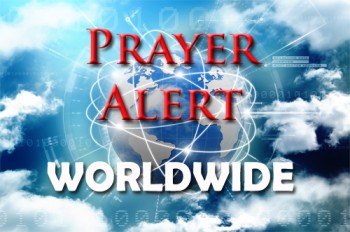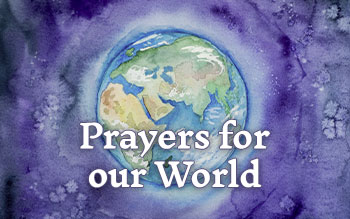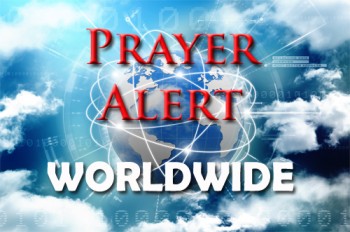Displaying items by tag: prime minister resigns
Haiti: uncertainty after PM’s resignation
Haiti faces uncertainty after prime minister Ariel Henry's resignation, welcomed by Haitians amid escalating gang violence. Henry, stranded in Puerto Rico, pledged to resign once a transition council and temporary leader were chosen. US officials, after talks in Jamaica, expect the council to be appointed soon. Acting prime minister Michel Boisvert has signalled his willingness to facilitate an orderly transition. Port-au-Prince shows signs of improved security; the streets are quiet and the main cargo port has been reopened, though the airport remains closed. One of Haiti’s largest TV stations has left its headquarters, citing the insecurity. In another potential setback, the plans to deploy Kenyan police officers for a UN-backed security mission are on hold pending a new interim government. Haitians hope for stability as they await a new leadership amidst ongoing challenges.
Sri Lanka: more anti-government unrest
We prayed for Sri Lanka in April.l Please continue praying as protesters across the country are torching houses and businesses belonging to various ministers and MPs belonging to the ruling Rajapaksa family. During this week’s violence and looting PM Mahinda Rajapaksa resigned, and a luxury holiday resort owned by his son was torched by a mob. Over 200 people were injured and eight murdered in three days. The protesters want President Gotabaya Rajapaksa, Mahinda’s brother, to leave office. He has grossly mismanaged the economy, and they insist he must stand aside. In his first national address since protests began last month, he offered to cede some of the president's power to parliament but ignored calls to resign. Security forces are shooting law-breakers and looters on sight, and thousands of police and riot squads are patrolling the streets with tear gas and water cannons.
Sudan: prime minister resigns
Prime minister Abdalla Hamdok resigned after pro-democracy protests by thousands against his power-sharing deal with the army. Chanting ‘power to the people’, they called for a return to full civilian rule. The military responded with force, and Hamdok's resignation left them in full control, damaging Sudan's attempt for democratic rule. Mr Hamdok said that Sudan was at a ‘dangerous turning point threatening its survival’, and he had tried his best to stop the country from ‘sliding towards disaster’. He added, ‘Mediation attempts with civilian and military officials to achieve the necessary consensus to deliver to our people the promise of peace, justice and no bloodshed have failed.’ An economist by training, he is widely respected in the international community, having previously worked as an official with the UN. He helped negotiate removal of some of Sudan's debts, but this involved removing fuel subsidies, leading to higher prices of goods and then anti-government protests.
Lebanon: PM and entire government resign
Following the devastating explosion in Beirut last week, on 11 August prime minister Hassan Diab resigned. A professor of sociology has said, ‘Lebanon is facing the most dangerous moment in its history. The options are grim. If there isn't a serious will from the international community to create strong structural changes in Lebanon, we are going towards civil war. There is no alternative. It's very unfortunate to say that in this country we don't believe there is rock bottom any more.’ What a new Lebanon would look like nobody knows, but getting there will not be easy. The country is entering a period of political darkness. Protesters want root and branch reform. The state of emergency declared on 5 August brought the army onto the streets to prevent freedom of assembly, freedom of speech and freedom of the press. They also can now enter homes and arrest anyone deemed a security threat. Pray for corruption-free candidates to stand for selection in a completely safe and authentic change of leadership election.
Lebanon: PM resigns following protests
Lebanon's prime minister, Saad Hariri, has announced he is resigning following almost two weeks of anti-government protests.
Mr Hariri said he had hit a "dead end" and would tender his resignation to President Michel Aoun.
Demonstrations across the country have brought it to a standstill. Banks, schools and universities have been shut as a cross-section of society called for the whole government to go.
Hundreds of thousands of people have set aside religious differences and political affiliations and taken to the streets to demand an end to government corruption, inequality and sectarianism.
There have been demonstrations from the northern and traditionally conservative city of Tripoli, through the capital Beirut and all the way to the southern city of Tyre.
Those taking part want the political class that has dominated the country since its 1975-1990 civil war to be overthrown.
Its current economic crisis is the worst since that period, with a black market for US dollars developing in the last month or so.
More at: https://news.sky.com/story/lebanons-pm-al-hariri-to-resign-after-anti-government-protests-11848399
Pray: that the issues of corruption, inequality and sectarianism can be peacefully resolved.
Pray: that the more militant organisations will not take advantage of this unrest.
Pray: for a just and representative government to be democratically elected.
Pray: that Lebanon shall be saved.
Lebanon: demonstrations - PM resigns
Protesters have paralysed Lebanon, blocking roadways, closing schools and shutting banks nationwide. Emergency reform measures and an offer of dialogue with protest representatives by the president failed to defuse anger or move the cross-communal demonstrations of Christians, Muslims (Shia and Sunni), and Druze from the streets demanding the resignation of all Lebanese political leaders. On 29 October the prime minister, Saad Hariri, resigned. The protests over political corruption and economic turmoil began after now-scrapped plans to tax WhatsApp calls were introduced in mid-October. Lebanon has one of the highest debt levels in the world. Mr Hariri must stay on until a new administration is established, but parliament contains the same factions that are in the outgoing coalition. On 30 October demonstrators celebrated Hariri’s departure, but vowed to stay in the streets until all their demands are met. See
